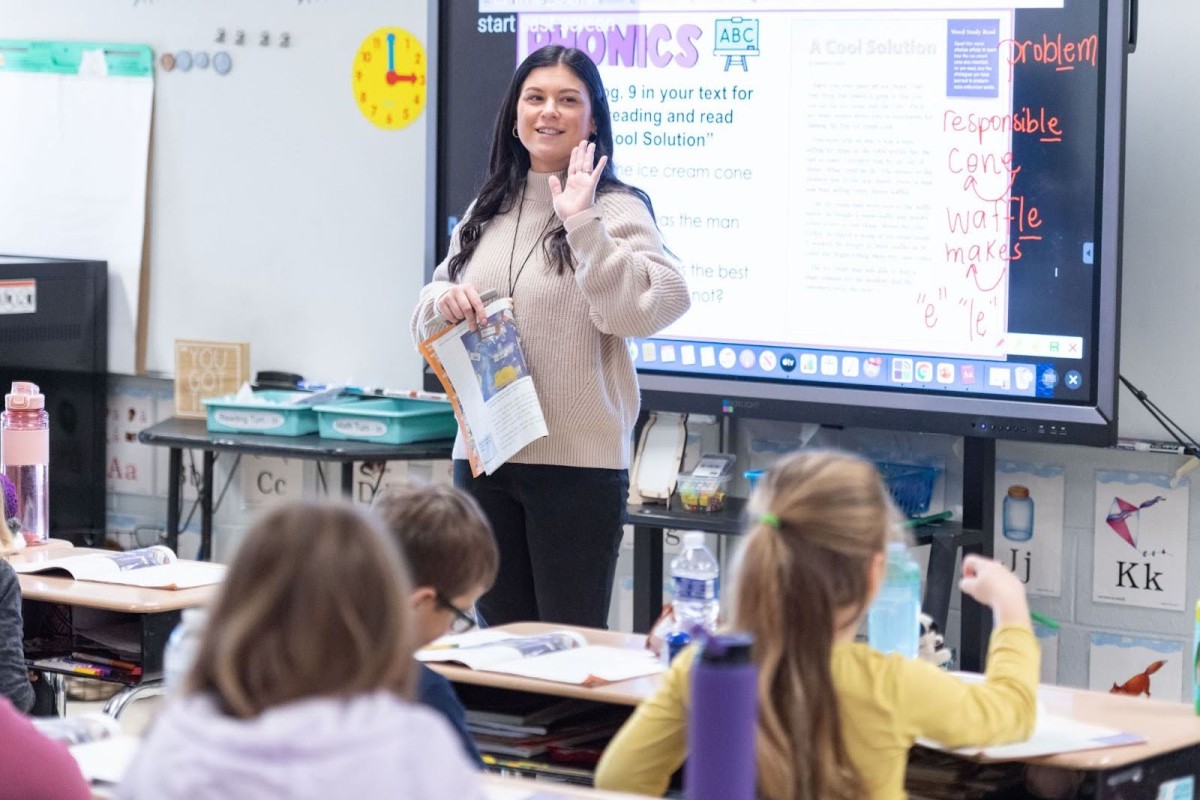What Second-year Teachers Wish Every Leader Knew: A Teacher Panel Series
August 6, 2025

By NIET CEO Dr. Joshua Barnett
NIET forged its 25-year legacy through implementing proven strategies with partner schools, districts, states, and universities across the nation. Throughout this quarter century of experience, we have learned important lessons along the way, which is why we are intentional about keeping our ears and doors open to those we support in classrooms every day. Our mission – building educator excellence to give all students the opportunity for success – can only be achieved when teachers thrive.
In our continued conversations with early career educators, second-year teachers revealed how they have shifted from adjustment to action in the classroom. They described refined instruction, plans to engage students through curricula, and deepened collaboration. These reflections offered both inspiration and clarity about what supports matter most in this moment during their careers. Above all, these educators affirmed that professional learning, leadership opportunities, and a strong school culture are the key factors in keeping great teachers in the classroom and moving us toward fostering a sustainable profession.
3 Lessons from Second-year Teachers:
1. Coaching Increases Confidence: The confidence and assurance in the second-year teachers’ discussion was heartening, and an excellent tribute to great coaching and support that can drive strengthened retention among teachers. By year two, many described how they had learned to embrace growth and challenges. Mastery had become a continuous process rather than an end goal
This breakthrough is no small milestone for our early teachers in our effort to retain them. It is the result of structures that NIET helps our partners to implement: strong preparation programs, intentional mentorship, and regular cycles of feedback and observation that build confidence and sharpen their practice.. Perhaps most meaningful was how this group shared that they began to see the full impact they were having on students, reigniting that flame that led them to the classroom in the first place.
“It altered my perspective... the amount of impact you can have on so many kids is probably one of the most humbling things you can experience,” one teacher said.
2. Instructional Support Deepens Curriculum Impact: By year two, we heard that educators were beginning to look beyond implementation and explore adaptation. They felt more confident in evaluating curricula materials and asking themselves: How can I make this more effective for my students, knowing their needs? This moment of reflection was pivotal and helped them leverage their instructional practices in the classrooms.
One second-year teacher described the unique challenges of navigating a new curriculum while still learning the material himself, and how essential support is to student success.
“I was concerned with how the students receive and process this information, so I met with my science coach and campus leadership and we looked at a bunch of different sources that were both supported by the district and also adjacent to, or aligned with the content standards so that I could keep the students engaged with material that was much more suited to their level than what was available in the curriculum,” he explained. “That gave me a little bit more confidence in myself as a teacher because it demonstrated that it's not only the curriculum that makes a good education, it's the teacher and how they present the information.”
This layered support of mentoring and leadership is a structure that NIET helps our partners implement. It builds on the foundation laid in year one and provides the standards, capacity, and rigor to promote a mindset shift in our new educators. What began as a dialogue regarding classroom management, student engagement, and lesson delivery has evolved into a conversation about strategic decision-making in curricula implementation and teaching style within content standards.
3. Learning Environment Strengthens Collaboration: Each teacher we spoke with emphasized the importance of collaboration. Working closely with peers helped each of them feel connected, inspired, and supported, particularly during moments of challenge. Collaboration has been a cornerstone of NIET’s work with partners, and for good reason: it supports teacher growth and strengthens school culture by developing knowledge, credibility, and trust among a team.
Teacher collaboration not only creates community but also combats isolation, particularly for novice teachers who may feel overwhelmed. It sparks fresh ideas and innovations that may not surface in a silo. It also supports alignment and cohesion across classrooms, grade levels, and school systems.
When implemented with intention, collaboration leads to stronger teams, more connected educators, and a learning environment where early career teachers feel supported - and, in turn, stay.
These three conversations with aspiring, first, and second-year teachers reveal a clear and compelling road map for our work in supporting educators as they begin their careers. Across each stage, they emphasized what they need most: early classroom experience and preparation, close mentorship in their first year, and deeper support around instruction and collaboration during their second.
At NIET, we are listening. We remain committed to using these insights to inform our partnerships and practices nationwide to build educator excellence so all students have the opportunity for success.
Missed Part 1 and 2? Hear what aspiring teachers, and first-year teachers, wish every leader knew in our Teacher Panel Series.